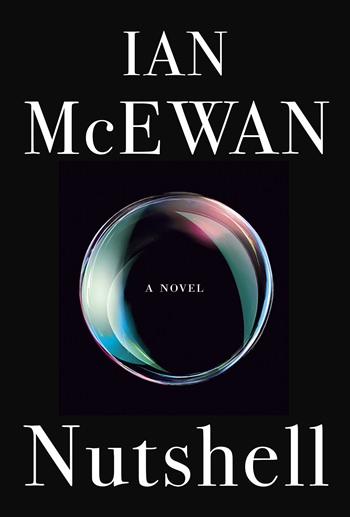“Nutshell” (Nan A. Talese/Doubleday), by Ian McEwan
It takes a lion’s nerve to rewrite “Hamlet” from the viewpoint of a fetus, a stunt conceived and sweetly achieved by Ian McEwan in his latest novel, “Nutshell.”

McEwan’s 197-page thimble brims with literary allusions, social commentary and murderous intrigue. The setting is contemporary London. Our narrator, a fully aware infant awaiting birth, overhears his mother plotting with her lover to kill her husband. The doomed cuckold, our narrator’s father, is a poet, who isn’t around much and seems to have forgotten his heir. Our nameless narrator’s loyalties are torn.
From our storyteller’s cramped quarters, he listens as Trudy and Claude (stand-ins for Shakespeare’s Gertrude and Claudius) work out their plan. He soliloquizes, already world-weary from the podcasts and news reports that lull Trudy on sleepless nights in her late pregnancy: “My disposition is to stillborn sterility, then to dust.”
Cleverness accumulates. Twists come from John Cairncross, a character slyly named for a real-life World War II double agent. Claude, at one point, breaks the tension as he bungles into the wrong Shakespearean tragedy and misquotes it: “So we’ll stick our courage to the screwing whatever.”
Later and inevitably, our narrator puts aside words, takes action and hurls the story to its end. McEwan, whose prose is always exquisite, is best known for “Amsterdam,” ‘’Atonement” and “Saturday.” His “Nutshell” is a stunt, but a gorgeous one, studded with Joycean reflections on fathers, the wisdom of pop songs and reviews of placenta-filtered fine wine.




